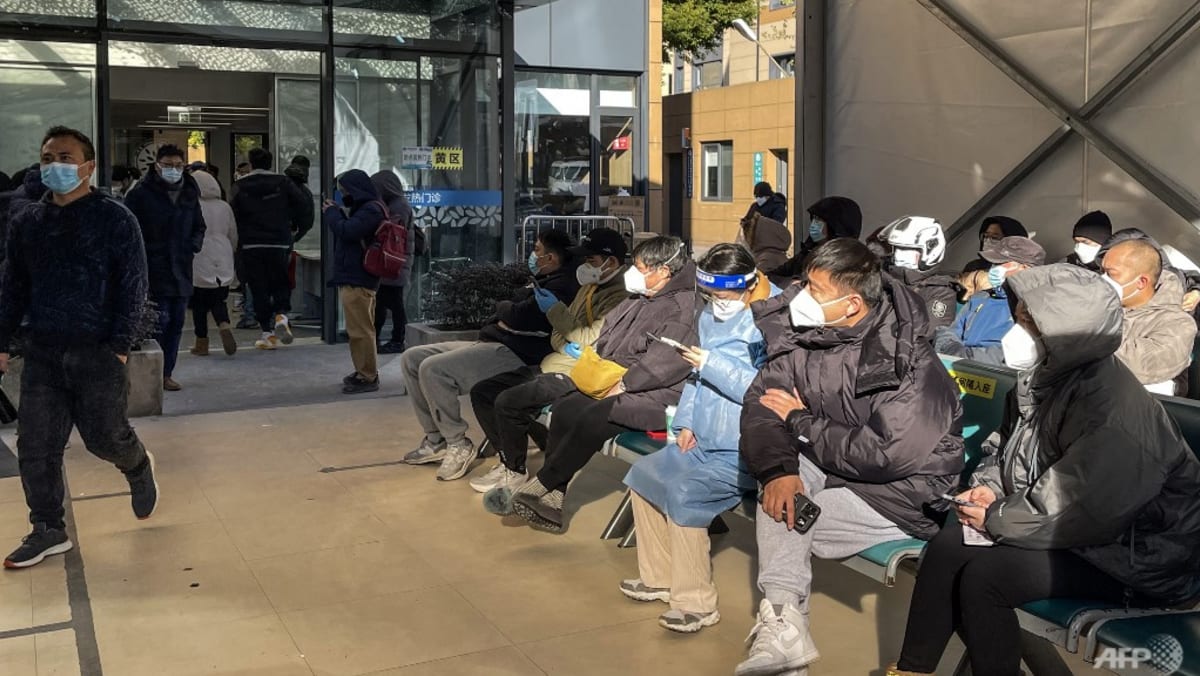WIDESPREAD INFECTION
The following Monday on Dec 12, I arrived at the office to see most of my colleagues masked up – a sight that I had not seen since the early days of the pandemic in 2020. Our HR department released a circular later that day, informing us that four of our co-workers had tested positive.
The virus spread like wildfire in the days that followed, and I watched the office empty out as more colleagues caught COVID-19. With no guidelines and restrictions in place, the rate at which the infection was spreading was uncontrollable.
By the following week, only a handful of people were in the office – about three-quarters of our workforce were home and sick. Companies across Shanghai were experiencing the same phenomenon.
The streets of Shanghai were largely empty as people recovered from COVID-19 at home. Restaurants were deserted, and shops (even major luxury brand boutiques) were closed because of the manpower crunch. Everyone was ill.
At this point, it was virtually impossible not to get infected.
“I went to the hairdresser the other day and when he learned I hadn’t caught COVID-19 yet, he asked if it was because I had no friends and no social life,” a Singaporean friend laughingly related to me over dinner one evening that week.
“I hope I get it soon, though. Then I’ll be over and done with it.”
She didn’t have to wait long. She got a text from her boyfriend shortly after, informing her that he had tested positive. Within two days, she was down with COVID-19 too.
Her sentiment was echoed by many of my friends and co-workers in China. While some of them remained wary of the virus, most welcomed this wave and hoped that it would soon mark the end of this COVID-19 chapter in their lives.
(Except for the headline, this story has not been edited by PostX News and is published from a syndicated feed.)

